-
Focus on Eye Injury Prevention
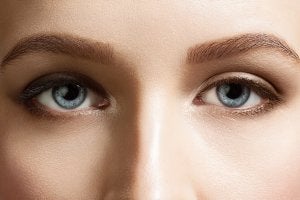 Because October is eye injury prevention month, your eye doctor in Chicago may give you certain eye care tips. These tips will help you reduce your risk of suffering from a painful eye injury in or out of your home. Eye injuries often necessitate costly visits to an ophthalmologist for eye care or eye surgery, and some injuries can be permanent or debilitating. Here are some key eye injury prevention tips.
Because October is eye injury prevention month, your eye doctor in Chicago may give you certain eye care tips. These tips will help you reduce your risk of suffering from a painful eye injury in or out of your home. Eye injuries often necessitate costly visits to an ophthalmologist for eye care or eye surgery, and some injuries can be permanent or debilitating. Here are some key eye injury prevention tips.In Your Home
If you’re cleaning your home with any hazardous or dangerous cleaning products, exercise extreme caution. Such products include bleach, ammonia, and specialty cleansers. Do not mix any products together without first consulting a professional, and use all products in a well-ventilated area. When using any airborne products, such as bug spray, hairspray, body spray, be sure the nozzle of the spray is pointed away from your face, or that your eyes are closed or you’re wearing eye protection.
In Your Garage or Workshop
If you’re using power tools, it’s essential that you wear protective eyewear, such as safety goggles. Safety goggles will protect your eyes from dust and sawdust, flying particles and debris, and broken pieces that may become airborne as a result of faulty equipment. In your garage, you may be subject to harmful fumes, chemicals, and sparks that can cause damage to your eyes. If you’re working on your car, wear protective eye gear to ensure that you won’t suffer from an eye injury.
In Your Yard or Garden
Lawnmowers and other lawn and gardening equipment can launch rocks and other small pieces of debris into the air. Wear safety goggles to prevent these projectiles from injuring your eyes. If you’re spraying your garden with insecticide or other chemicals, always point the nozzle of the spray bottle away from your face, and wear protective eyewear. If you’re playing sports or games in the yard, protect your eyes from flying balls or other sports equipment.
-
Healthy Aging Month: Protecting Your Eyes as You Get Older
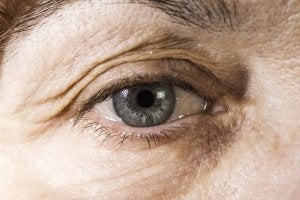 As you age, you become more vulnerable to certain eye conditions and diseases. These conditions can cause impaired vision and even blindness if they aren’t treated by an eye doctor. If you’re getting older, an eye doctor or ophthalmologist near Chicago can help you maintain the health of your eyes. Keep reading for some valuable tips on how to protect your eyes as you age.
As you age, you become more vulnerable to certain eye conditions and diseases. These conditions can cause impaired vision and even blindness if they aren’t treated by an eye doctor. If you’re getting older, an eye doctor or ophthalmologist near Chicago can help you maintain the health of your eyes. Keep reading for some valuable tips on how to protect your eyes as you age.Eat a Healthy Diet
A healthy diet can go a long way towards maintaining the health of your eyes. Fresh, leafy greens, fruits, and a diet rich in vitamin A, vitamin C, and antioxidants can greatly reduce your risk of developing eye conditions or diseases. Cataracts and macular degeneration occur much less often in those who eat healthy diets that are rich in vitamins, minerals, healthy proteins, omega-3 fatty acids, and lutein. You should also consume plenty of fresh fruit, vegetables, whole grains, healthy fats and protein, and water.
Take Eye Vitamins and Vision Supplements
Nutritional supplements combined with a healthy diet and regular exercise can significantly lower your risk of vision problems and eye conditions. Beta-carotene, zinc, vitamin C, and vitamin E are crucial for maintaining the health of your eyes. Your eye doctor may recommend that you take a daily multivitamin that also contains lutein, zeaxanthin, omega-3 fatty acids, and copper—and supplement that multivitamin with a daily dose of vitamin B complex with folic acid.
Visit an Eye Doctor Regularly
The best way to detect an eye condition early enough to receive successful treatment is by regular visits to an eye doctor or ophthalmologist. Your eye doctor can do regular screenings for macular degeneration, glaucoma, cataracts, astigmatism, and eye cancer. The sooner these eye conditions are diagnosed, the more effective your treatment will be. Your eye doctor can also recommend nutritional and lifestyle changes that will decrease your risk of developing certain dangerous eye conditions.
-
What Is a Cortical Cataract?
 A cataract is an eye condition that causes worsening vision and eye problems if it is not treated by an eye doctor. The symptoms of cataracts include blurry vision, sensitivity to light, poor night vision, double vision, seeing halos around light sources, distortion of color perception, and frequent changes in contact lens or eyeglasses prescriptions. Cataracts can be diagnosed and treated by an eye doctor or ophthalmologist near Chicago .
A cataract is an eye condition that causes worsening vision and eye problems if it is not treated by an eye doctor. The symptoms of cataracts include blurry vision, sensitivity to light, poor night vision, double vision, seeing halos around light sources, distortion of color perception, and frequent changes in contact lens or eyeglasses prescriptions. Cataracts can be diagnosed and treated by an eye doctor or ophthalmologist near Chicago .There are three primary types of cataracts: subcapsular cataracts, nuclear cataracts, and cortical cataracts. Cortical cataracts cause a worsening of vision that begins in the peripheral vision. You may notice cloudy, white floaters that progress from the periphery of your vision towards the center. Cortical cataracts occur in the lens cortex, or the part of the eye’s lens that surrounds the central nucleus.
If you suffer from cataracts, an eye doctor or ophthalmologist may first try to correct your vision using eyeglasses or contact lenses. If this treatment doesn’t work and the cataracts progress, you may need to undergo cataract surgery. Often, cataract surgery is the only truly successful method of cataract treatment.
-
Tips for Keeping Your Child’s Eyes Healthy
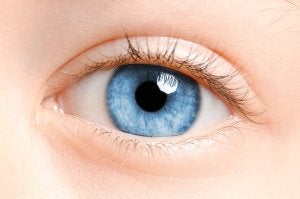 As a parent, you’re responsible for protecting the health of your child’s eyes. This includes taking him for regular visits to an eye doctor or ophthalmologist near you. You’ll also need to buy him appropriate protective eyewear for sports and swimming, watch him carefully when he handles sharp objects, and keep him away from fireworks and other incendiary devices. For more tips on children’s eye care near Chicago , keep reading.
As a parent, you’re responsible for protecting the health of your child’s eyes. This includes taking him for regular visits to an eye doctor or ophthalmologist near you. You’ll also need to buy him appropriate protective eyewear for sports and swimming, watch him carefully when he handles sharp objects, and keep him away from fireworks and other incendiary devices. For more tips on children’s eye care near Chicago , keep reading.Protect Eyes from Damage
When your child is very young, don’t allow him to play with any toys that have sharp edges that may gouge or damage the eyes. Don’t let him play on or near tables or other furniture with sharp corners. When your child begins swimming or playing sports, buy him appropriate safety eyewear to protect his eyes from injury. If your child spends prolonged periods of time outdoors, make sure that he wears sunglasses regularly.
Visit an Ophthalmologist Regularly
An ophthalmologist is a medical doctor who specializes in eye and vision care. Ophthalmologists are different from ophthalmologists, as they are eye doctors who can prevent, diagnose, and treat a wide array of eye disorders and diseases. If there is a history of eye or vision problems in your family, it is even more important that your child visit an ophthalmologist regularly. Your child’s ophthalmologist can provide your child with eye exams, and screen his eyes for signs of illness, disease, cancer, and vision problems.
Have Vision Checked With an Eye Doctor
An eye doctor or ophthalmologist can provide your child with regular vision checkups. He will also test your child for astigmatism, glaucoma, and other eye conditions. If your child has poor vision, an eye doctor will provide eyeglasses or contact lenses that can correct his vision. Certain vision problems and eye conditions become worse without treatment, so even if your child hasn’t mentioned suffering from any vision loss, he should still visit an eye doctor regularly.
-
Understanding Common Eye Problems
There are many different types of eye problems and eye disorders that people are vulnerable to. An eye doctor or ophthalmologist will regularly screen you for common eye problems. He can also offer you prevention tips to help reduce your risk of developing certain eye problems. If you’re interested in eye care or vision correction near Chicago , visit an experienced eye doctor near you.
Watch this video for some helpful information on the most common eye problems that eye doctors come across. In the clip, a representative of the National Eye Institute discusses such issues as nearsightedness, farsightedness, astigmatism, and presbyopia.
-
Tips for Recovering from LASIK
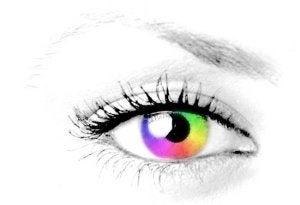 If your eye doctor or ophthalmologist recommends LASIK eye surgery near Chicago , you may have a lot of questions about the procedure and the recovery period. Your recovery will be much shorter and less stressful if you follow the advice of your eye doctor. Here are some tips on how to help yourself recover more quickly from LASIK surgery.
If your eye doctor or ophthalmologist recommends LASIK eye surgery near Chicago , you may have a lot of questions about the procedure and the recovery period. Your recovery will be much shorter and less stressful if you follow the advice of your eye doctor. Here are some tips on how to help yourself recover more quickly from LASIK surgery.Give Yourself a Break
Give your eyes time to rest throughout the day. Don’t use them for taxing activities or to focus on small objects for prolonged periods of time. Take a few days off of school or work, and let yourself slowly ease back into the routine of your daily life. If you notice that your eyes feel strained or stressed, or if you develop a headache, lie down and close your eyes for a period of time. You can also try lying down in a dim room.
Protect Your Eyes
Take baths instead of showers to prevent water, shampoo, and soap from dripping into your eyes and irritating them. Do not rub your eyes with your hands or a towel. Do not play sports or participate in any water activities for at least a month after surgery. Your vision and depth perception have not completely adjusted, and you don’t want to risk getting hit in the eyes or sustaining an eye injury. Wear protective eyewear for at least 2 weeks post-surgery, including while you sleep or if you shower. Wear dark sunglasses both indoors and outdoors to protect your eyes from the sun and harsh lights.
Follow Your Doctor’s Advice
Visit your eye doctor regularly post-surgery, particularly 24 hours after the procedure. Follow his advice strictly. If he prescribes you medicated eye drops, use them as directed. They can help your eyes heal faster, and will make them feel less dry and irritated. Your eye doctor may suggest that you avoid wearing makeup or using facial lotions and creams. They can easily get in your eyes and cause irritation and infection.
-
Understanding Cataracts
A cataract is a cloudy area in the lens of the eye that makes it difficult to see. Cataracts can be caused by aging, sunlight exposure, and eye injuries. They can be diagnosed and treated by an eye doctor or ophthalmologist in Chicago . Treatment may include corrective lenses and/or surgery.
Watch this video to learn more about cataracts. An eye doctor with the National Eye Institute discusses the causes, symptoms, diagnosis, and treatment options for those with cataracts. Cataracts can cause a slow, gradual loss of vision, and some people are not afflicted with vision loss at all. If you suspect you may be suffering from cataracts, visit an eye doctor or ophthalmologist near you.
-
Spotlight on Macular Degeneration
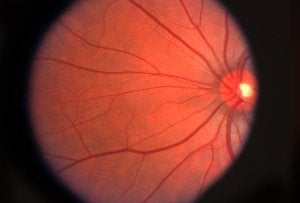 Macular degeneration is an eye condition that is caused by the retina deteriorating and vision becoming impaired. The condition can be diagnosed and treated by an eye doctor or ophthalmologist in Chicago . Symptoms include the distortion of lines or the center of vision, the appearance of dark, blurry areas in the center of vision, the white out of the center of vision, and diminished or distorted perception of color.
Macular degeneration is an eye condition that is caused by the retina deteriorating and vision becoming impaired. The condition can be diagnosed and treated by an eye doctor or ophthalmologist in Chicago . Symptoms include the distortion of lines or the center of vision, the appearance of dark, blurry areas in the center of vision, the white out of the center of vision, and diminished or distorted perception of color.If you experience any of these symptoms, see an eye doctor or ophthalmologist as soon as possible. There is no cure for the condition, but your eye doctor can offer several treatment options for macular degeneration. These include medication called anti-angiogenic drugs that are injected into the eyes, laser therapy or photodynamic laser therapy, and certain vitamins. Vitamins C, E, beta-carotene, zinc, and copper can sometimes decrease the risk of vision loss that is associated with macular degeneration.
If you’ve been diagnosed with macular degeneration, you can prevent the condition from getting worse by making some simple lifestyle choices. Eat a healthy diet that is rich in dark green, leafy vegetables. Eat fish, and other foods rich in omega-3 fatty acids, and limit your intake of saturated fats.
-
A Look at Amblyopia
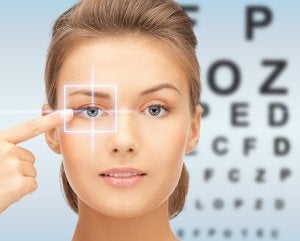 Amblyopia, also known as lazy eye, is an eye condition that develops during childhood. It can be diagnosed by an eye doctor or ophthalmologist. The condition can be corrected over time with an early diagnosis and your child’s commitment to your eye doctor’s recommended treatment method. If you’re worried that your child is developing amblyopia, visit an ophthalmologist near Chicago , and continue reading to learn about the condition’s symptoms and treatment options.
Amblyopia, also known as lazy eye, is an eye condition that develops during childhood. It can be diagnosed by an eye doctor or ophthalmologist. The condition can be corrected over time with an early diagnosis and your child’s commitment to your eye doctor’s recommended treatment method. If you’re worried that your child is developing amblyopia, visit an ophthalmologist near Chicago , and continue reading to learn about the condition’s symptoms and treatment options.What is Amblyopia?
Amblyopia is a condition in which one eye is much weaker than the other one. As a result, the brain will only interpret the images that are received by the stronger eye, and the vision in the weaker eye will become worse and worse. You child can develop this condition at birth or at any point up until around 7 years of age. The younger your child receives treatment for the condition, the more successful the treatment will be. Amblyopia can be caused by genetics, low birth weight, strabismus, cataracts, or by being more nearsighted or farsighted in one eye than the other.
What are the Symptoms and How is the Condition Diagnosed?
The symptoms of amblyopia include an eye that wanders or looks in a different direction than the other eye, tilting the head or squinting to improve vision, an upper eyelid that droops, or crying and complaining when one eye is covered up. The condition is diagnosed by an eye doctor or ophthalmologist via an eye exam. The exam will demonstrate that the vision in one eye is worse than the vision in the other. No child is too young for an eye exam, so if you’re concerned that your child has amblyopia, make an appointment with an eye doctor as soon as possible.
How is the Condition Treated?
You child’s vision can be corrected if he begins using the weaker eye instead of the stronger one. The weaker eye will become stronger over time, and the vision in that eye will begin to get better. Your child’s eye doctor may make him wear an eye patch over the stronger eye.
-
Ophthalmologist Top 15 Foods for Eye Health
It sounds counterintuitive to eat your way to better eye health, but the truth is that nutrients in some foods can prevent eye disease and vision loss. You’ve probably heard that of carrots and leafy greens boost eye health, but there are numerous other foods that help you keep your vision.
Unsurprisingly, snacking your way to eye health starts in the produce section. A good rule of thumb is to pick fruits and vegetables of vibrant and deep coloring, which indicates high nutritional content, especially of vitamin A, which is crucial to eye health. But nutrient-rich foods aren’t just in the produce section: fish, nuts, and eggs all provide essential nutrients that can prevent macular degeneration and cataracts.
Remember, it’s important to eat with your eyes in mind. Since a lot of eye diseases can be prevented, it’s never too late to start adding foods for eye health to your diet.
